- News
- Reviews
- Bikes
- Components
- Bar tape & grips
- Bottom brackets
- Brake & gear cables
- Brake & STI levers
- Brake pads & spares
- Brakes
- Cassettes & freewheels
- Chains
- Chainsets & chainrings
- Derailleurs - front
- Derailleurs - rear
- Forks
- Gear levers & shifters
- Groupsets
- Handlebars & extensions
- Headsets
- Hubs
- Inner tubes
- Pedals
- Quick releases & skewers
- Saddles
- Seatposts
- Stems
- Wheels
- Tyres
- Tubeless valves
- Accessories
- Accessories - misc
- Computer mounts
- Bags
- Bar ends
- Bike bags & cases
- Bottle cages
- Bottles
- Cameras
- Car racks
- Child seats
- Computers
- Glasses
- GPS units
- Helmets
- Lights - front
- Lights - rear
- Lights - sets
- Locks
- Mirrors
- Mudguards
- Racks
- Pumps & CO2 inflators
- Puncture kits
- Reflectives
- Smart watches
- Stands and racks
- Trailers
- Clothing
- Health, fitness and nutrition
- Tools and workshop
- Miscellaneous
- Buyers Guides
- Features
- Forum
- Recommends
- Podcast
TECH NEWS
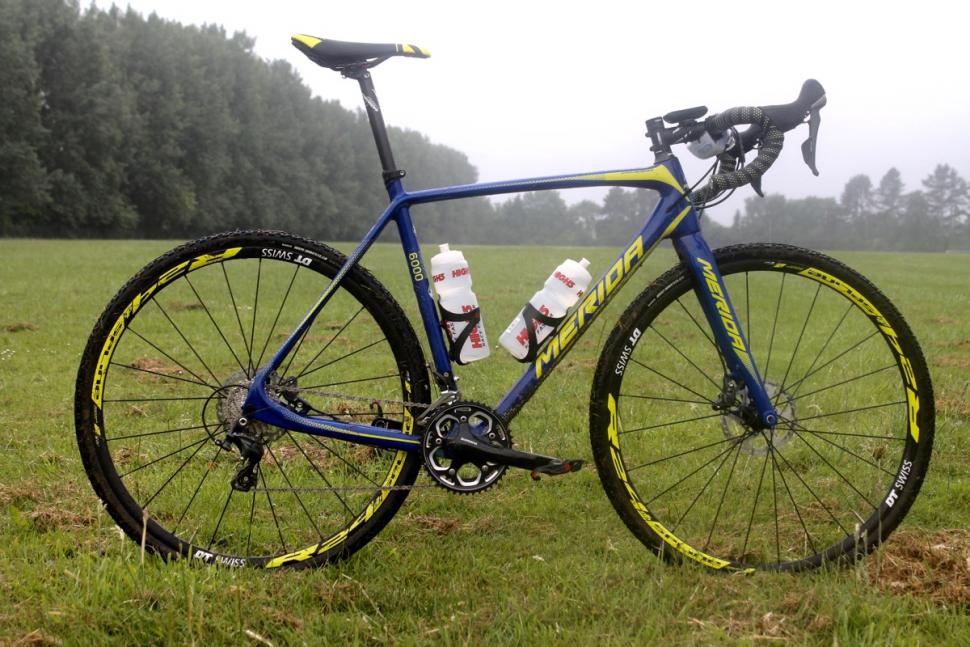 Ritchey Reveller - 5.jpg
Ritchey Reveller - 5.jpgFirst Ride: Merida Cyclo Cross 6000
The Merida Cyclo Cross 6000 is a race-driven bike that’s a lot of fun for blasting around out of competition too.
We reviewed the £1,700 Merida Cyclo Cross 5000 on road.cc recently. This is its big brother. You get the same carbon-fibre frame and fork (15mm thru axle at the front, 12mm thru axle at the rear), but instead of a Shimano 105 groupset you get next-level up Ultegra. The 6000 comes with Shimano’s RS685 hydraulic disc brakes (160mm rotors) instead of TRP’s mechanical Spyres, and you get an upgrade to DT Swiss R24 Spline wheels and a Prologo Kappa 3 saddle too. It’s priced at £2,200.
Read our Merida Cyclo Cross 5000 review.
I’ve ridden the Cyclo Cross 6000 quite a bit over the past few weeks, most recently for the Ritchey Reveller Dirt Sportive with Mr Dave Arthur.
Dave rode a Ritchey Swiss Cross Disc. Read his First Ride here.
The Ritchey Reveller is “an approximately 60km dirt sportive,” according to the organisers. “Expect more than 50% gravel and dirt tracks on our loop around greater Bristol. We strongly recommend cyclocross or gravel bikes but all bikes are allowed.”
A couple of things to say about that. First, Dave and I missed a couple of turns (okay, it was mainly me; I just didn’t seem to be able to pick out the arrows for some reason). Instead of doing 60km we did, um, 82km! We didn’t care, it was a blast. The way I look at it, that’s 37% more riding for the entry fee. Result.
Second, the terrain. It had been raining hard over the day before the Ritchey Reveller. That can make a big, big difference when you’re riding off-road. The hard packed gravel sections were dotted with puddles but that didn’t make much difference. Some of the muddy sections were gloopy, though, and some of the stoney bits were slippery. That didn’t make the riding any less fun, but it did make it more difficult.
Anyway, let’s get back to the bike…
Despite its mudguard mounts, you could describe the Cyclo Cross 6000 as a race-focused cyclocross bike rather than a more relaxed all-rounder. That’s not to say that it’s only at home in competition, but this is certainly a bike designed with speed in mind.
In terms of geometry, the 56cm model, for example, has a stack height (the vertical distance from the centre of the bottom of the bottom bracket to the top of the head tube) of 574mm and a reach (the horizontal distance between those points) of 387mm. That’s a considerably more aggressive than the Ritchey Swiss Cross that Dave was riding.
The carbon-fibre frame is very stiff both around the bottom bracket and the tapered head tube (1 1/8in bearing at the top, 1 1/2in bearing at the bottom), and everything holds firm when you get out of the saddle to give it full force over a climb.
When sitting down to winch up the longer hills, I had all the gears I needed via the 46/36-tooth Shimano Ultegra chainset and 11-28-tooth cassette. The only trouble in the climbing department was that the Maxxis Mud Wrestler 33mm tyres would sometimes gum up in certain types of mud. As well as being fairly narrow, the tread is quite shallow, so it can fill up with sticky stuff and leave you without much traction.
On the other hand, I found these tyres to be very quick across slightly firmer mud – on anything where they didn’t get overloaded, basically – and they were a definite advantage over the more knobbly 35mm Ritchey Shield tyres on Dave’s bike once we hit gravel tracks. It might be obvious but using the right tyres for the conditions can make such a massive difference.
You might have expected Dave to have had the advantage back on the asphalt because his bike had a compact (50/34-tooth) chainset whereas mine was a cyclocross setup, but that would only be an issue if I ran out of gears at 35-40mph. The Ritchey Reveller is a very twisty-turny course; I’ve not downloaded the ride and I could be wrong but I don’t think there would have been many times when we were doing that kind of speed, so my faster rolling tyres were a benefit. Anyway, that’s enough about tyres; this is turning into Formula 1.
We didn’t have any descents that were so steep you had to get your butt right off the back of the saddle, but we did have some slippery rock sections and a lot of wooded trails where you couldn’t see around the next corner, so it was great to have the reassurance of plenty of power from the Shimano RS685 hydraulic disc brakes. They provide all the stopping oomph you need while loads of lever feel allows you to avoid locking up even when the bike is getting bounced around all over the place. People can argue about their merits on the road but you can’t beat hydro disc brakes for wet off-road conditions.
Some people might prefer to have flat mount rather than the post mount system you get here on the basis that that’s the way the market is heading, but in terms of function there’s little to fault.
Read our Shimano RS685 hydraulic disc brake First Ride here.
I was perfectly happy with the level of comfort on offer from the Merida Cyclo Cross 6000. There’s some give in the 27.2mm diameter seatpost and the Prologo Kappa 3 saddle is a slim shape with a little more sponginess than I’m used to – not a bad thing for riding off road. I hesitate to mention tyres again but if you do want more cushioning you could easily fit something wider than 33mm.
Overall, I’ve really enjoyed my time with the Merida, both at the Ritchey Reveller and on my own rides. A bike with a race attitude, it’s always up for blasting around tracks, bridleways, and whatever else you can find around your way. It’s probably not a bike you’d choose for all-day exploring, but if you want to get out into the countryside and rag it for an hour or two (or three), this is a bike that’s worth checking out.
Mat has been in cycling media since 1996, on titles including BikeRadar, Total Bike, Total Mountain Bike, What Mountain Bike and Mountain Biking UK, and he has been editor of 220 Triathlon and Cycling Plus. Mat has been road.cc technical editor for over a decade, testing bikes, fettling the latest kit, and trying out the most up-to-the-minute clothing. He has won his category in Ironman UK 70.3 and finished on the podium in both marathons he has run. Mat is a Cambridge graduate who did a post-grad in magazine journalism, and he is a winner of the Cycling Media Award for Specialist Online Writer. Now over 50, he's riding road and gravel bikes most days for fun and fitness rather than training for competitions.

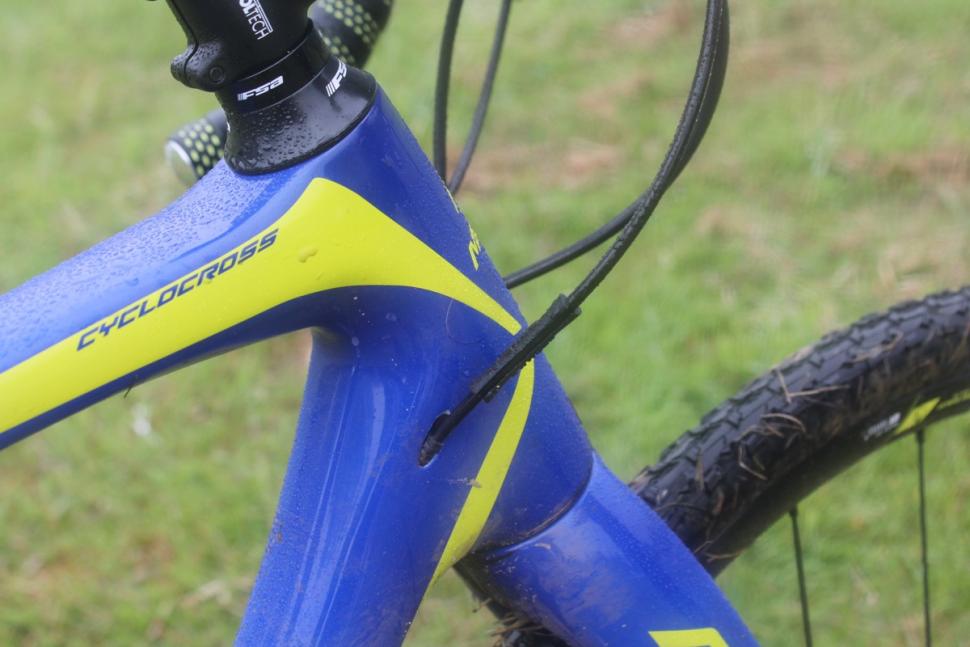
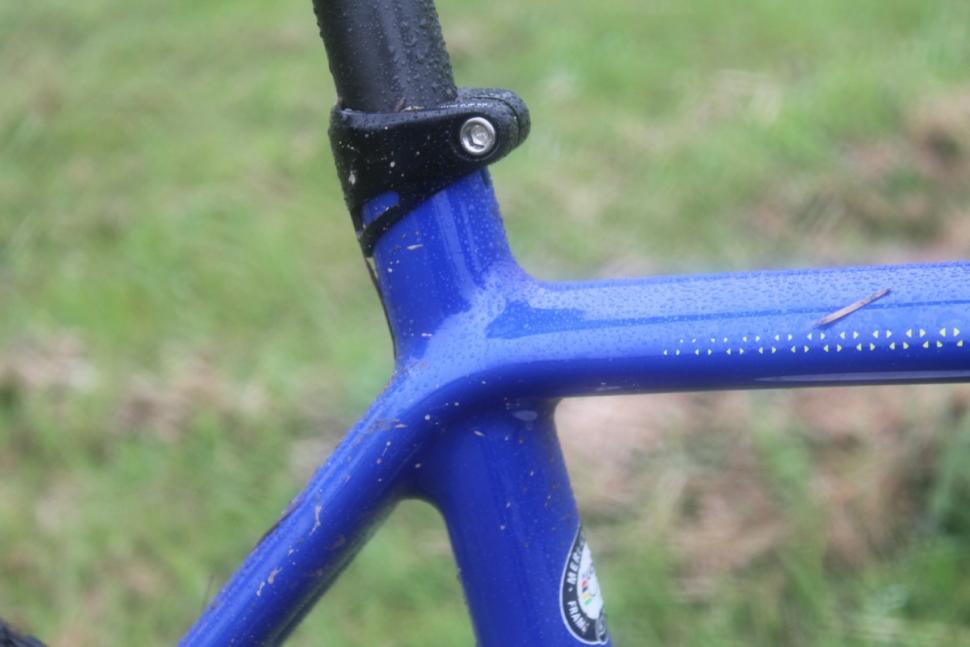
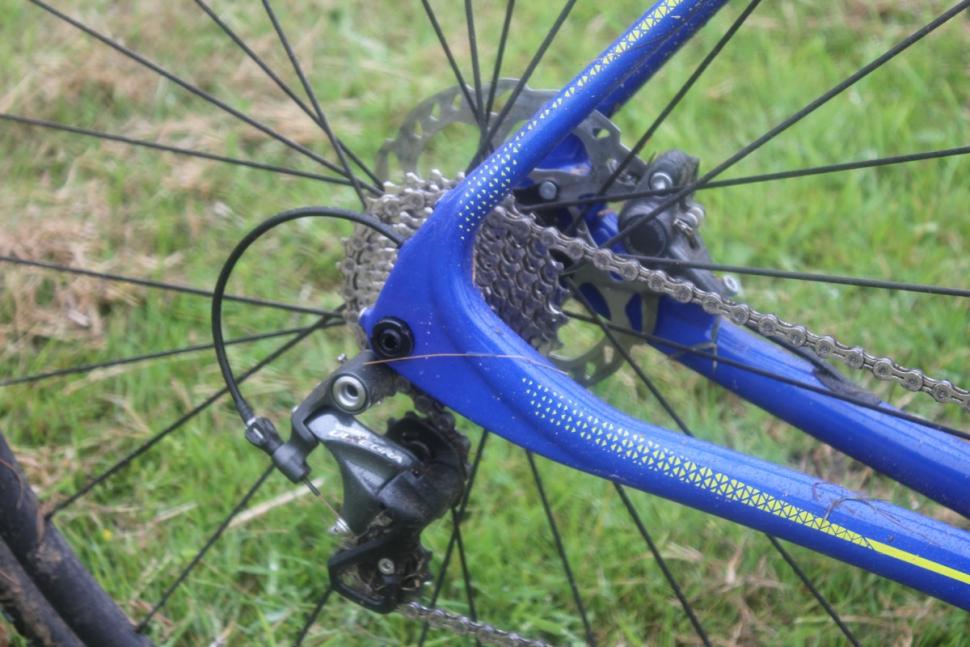
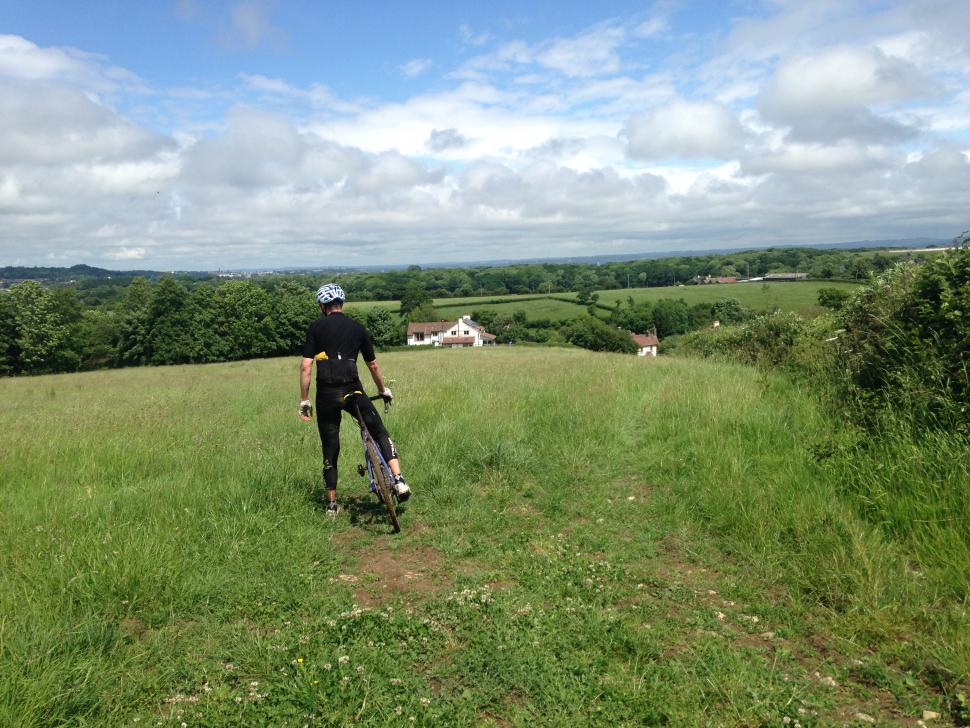
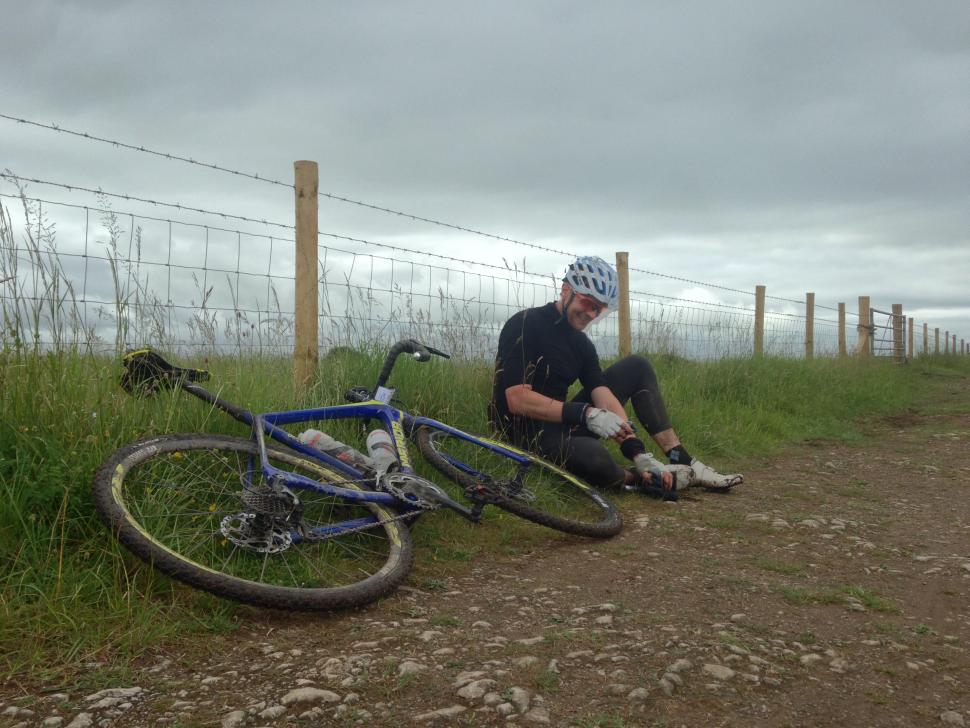
But what is the small print for mileage, state of the vehicle after 2 years? Lots of potential extra costs....
MORE LANES, MORE LANES!!!!
The numbers don't tell anything like the whole story....
Just squirt some thick grease all over his side windows and door panels. If you're feeling really uncharitable you could throw some sand at the...
check under 'W'for "What cars do to people"
Fascinating - I have always thought Hersheys has a whiff of vomit about it!
good to see you're testing the farsports wheels - hope to see road.cc continue to expand the range of brands it considers. These or the shallower...
Duly triggered! (At least "it's comedy!" though)....
Sadly very normal. And the sand contains loads of evil little shards of flint.
Ah, Clevedon ...